Alexander Downer labels Anthony Albanese’s AUKUS submarine project a ‘white elephant’
Anthony Albanese has arrived home to a rude surprise, after a senior Liberal figure declared the plan all but impossible and US navy bosses faced questions about their own sub-par performance.
National
Don't miss out on the headlines from National. Followed categories will be added to My News.
If Anthony Albanese opened the newspapers on Saturday morning, having arrived home after four days in Washington DC, he would have received a rude surprise.
Australia’s longest serving foreign minister Alexander Downer, in an interview with The Australian, declared the AUKUS submarine plan the Prime Minister had been trying to shore up in the US would become “the greatest white elephant project in the world”.
“The submarines will never be built in Adelaide because the cost will be prohibitive and the technological challenges are too great,” the South Australian Liberal elder statesman said.
“Some government in the future will make the obvious decision and not go ahead with the Adelaide build.”
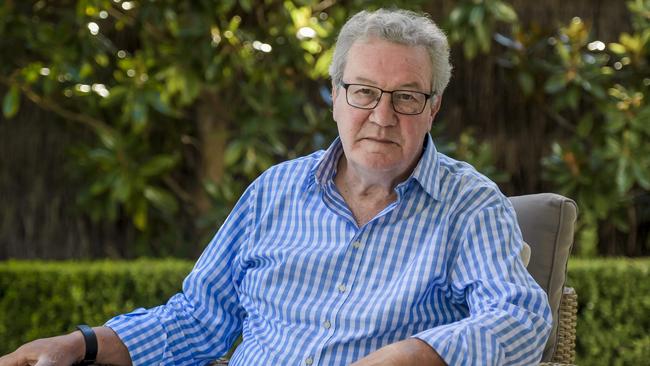
To make matters worse, while Downer was pushing to solely focus on buying American nuclear submarines – instead of eventually building our own – Albanese had returned without any guarantee the US Congress would approve the sale in the first place.
Indeed, when the Prime Minister was discussing the pact with Joe Biden at the White House, lawmakers on Capitol Hill were challenging US navy chiefs over how they could hand over at least three Virginia-class submarines in the 2030s.
“We can throw all the money we want to at the problem, but if you don’t have the people there in the yards to build these submarines, I don’t care what else we do, this enterprise fails,” Republican Rob Wittman said.
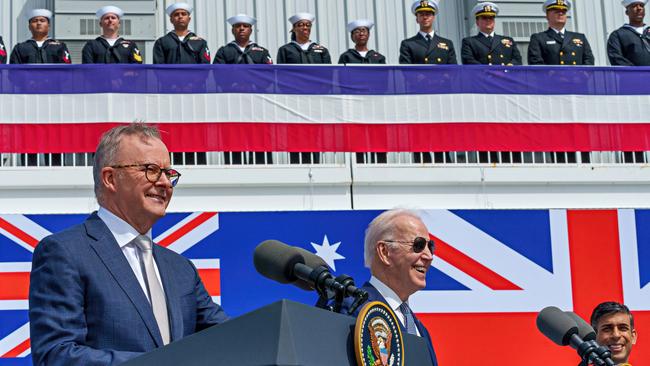
Democrat John Garamendi was similarly sceptical, saying there had long been “a problem in the submarine section of the Department of Defence”, before questioning whether the $US3.4bn spending boost Biden proposed on the eve of Albanese’s visit could fix it.
“Using AUKUS as the reason for this … (is) in my view disingenuous,” he said.
Biden put the money on the table and Albanese spent hours with members of Congress for the same reason: a growing number of mostly Republican members have recently threatened to block the Australian submarine sale unless the US speeds up production.
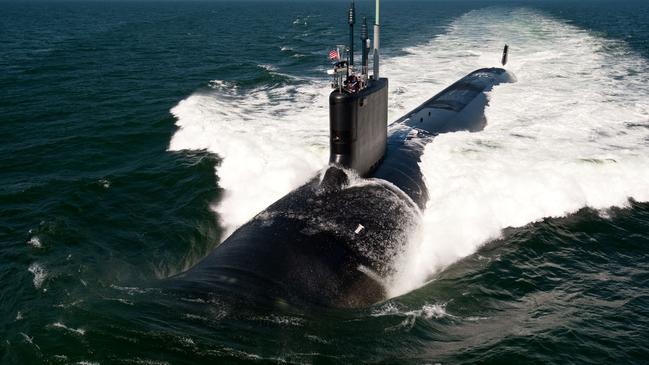
Roger Wicker, the senior Republican on the Senate Armed Services Committee, has been leading the way. While he welcomed the extra cash, he has warned the US navy needs 66 nuclear submarines now but has 49 – a number projected to drop to 46 by 2030 because only 1.2 Virginia-class boats are made each year instead of the two funded by Congress.
Admiral Lisa Franchetti, the incoming chief of naval operations, acknowledged last month that 2.2 vessels had to be built each year to meet America’s needs and its AUKUS promises.
The navy and the Biden administration are confident that is achievable, but only time will tell. Wittman said on Wednesday he was concerned America’s two shipbuilding firms were losing thousands of workers even as they hired thousands more, while an executive at one of the companies acknowledged the same day that the supply chain remained “very fragile”.
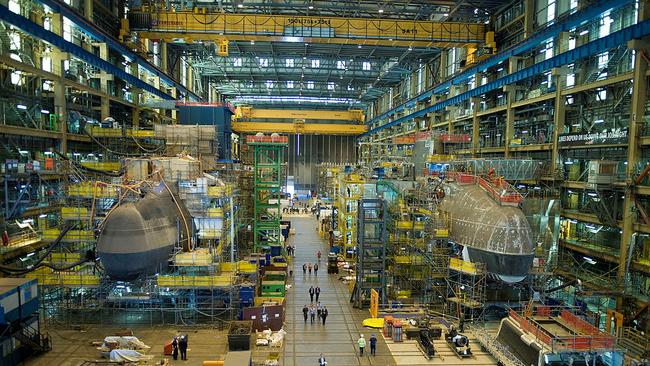
Solving workforce, training and supply chain issues will be even more difficult in South Australia, where construction of the SSN-AUKUS submarine is still years away from starting.
Albanese has not shied away from this, comparing the $368bn “whole-of-nation effort” to the “scale, complexity and economic significance … (of) the creation of the Australian automotive industry in the post-war period”.
But even before Scott Morrison revealed the pact more than two years ago, there were significant doubts in Washington DC about whether Australia had the capacity – both in financial and human capital – to handle such a challenge.
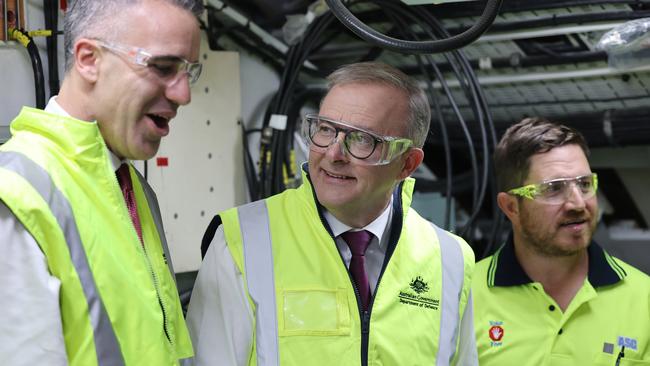
Hudson Institute senior fellow John Lee, who was the senior national security adviser to former foreign minister Julie Bishop, said before Albanese’s DC visit that Australia’s progress on AUKUS initiatives – such as the development of submarine infrastructure including an east coast base – had been “painfully slow”.
He cautioned Australia would have to “overcome the free-rider problem that justifiably concerns US lawmakers in both parties”, especially given defence spending under Albanese would “barely rise, if at all” according to current budget forecasts.
This goes to the core of Downer’s critique. Can we afford to build our own nuclear submarines, with all the extra costs that come with doing so from scratch, and even if we can, is it worth the money or is it “just pork-barrelling at its worst”?
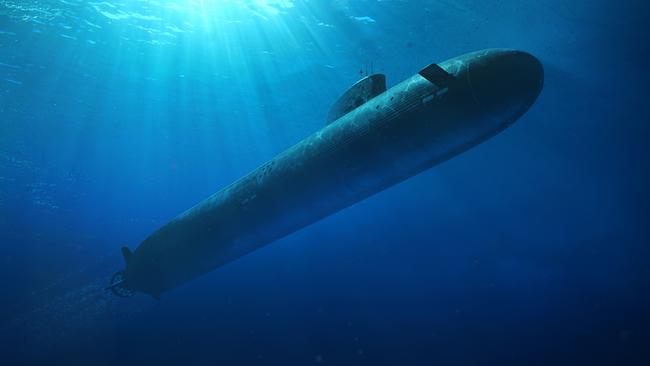
If we can’t, AUKUS is dead. A straight-up submarine purchase is not on offer – the US and the UK agreed on the basis that the pact would be a rising tide that lifts all boats, to borrow a phrase. Australia needs its own production line to live up to its end of the bargain.
Albanese, after his meetings on Capitol Hill, said he was struck by the bipartisan support for AUKUS. He said his key point to lawmakers was this: “Australians always pay our way. We pull our weight. We do our part. We always have. We always will.”
Fine words. But in China, they are taking action. According to the Pentagon’s latest report on China’s military power, Beijing is operating 60 submarines including 12 nuclear-powered boats. Even as older submarines retire, a massive expansion of its industrial base will grow its undersea force to 65 by 2025 and 80 by 2035.
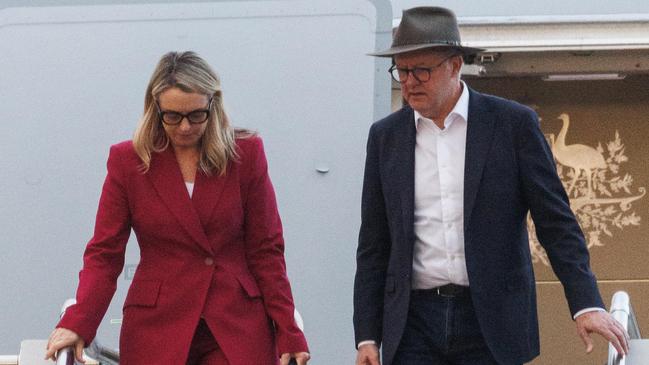
By then, Australia might have one or two second-hand Virginia-class vessels. That is Biden’s intention, although as he admitted while standing next to Albanese, he cannot secure the deal with a “personal guarantee”.
Instead of a future Australian government walking away from AUKUS, as Downer suggests, a future American administration could make the decision for us.
More Coverage
Originally published as Alexander Downer labels Anthony Albanese’s AUKUS submarine project a ‘white elephant’





